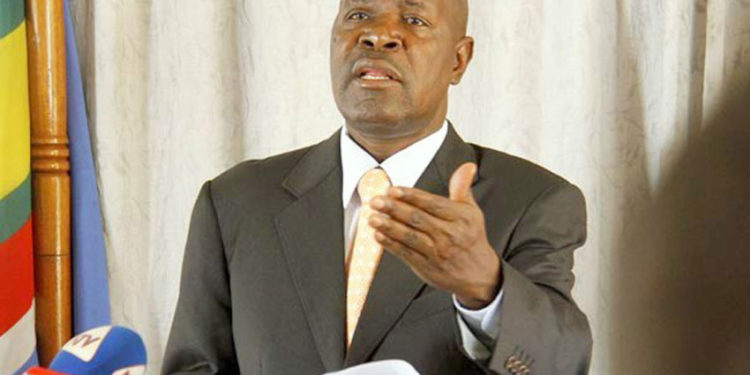The ongoing trade dispute between Uganda and its regional leading trade partner Kenya over sugar, maize, milk, table eggs, rice, beverages, furniture, pharmaceutical products, stationery, facial tissue and toilet paper quality is a good war because it represents real survival and prosperity issues for the two countries. At the centre are mutual suspicions and accusations that some goods are substandard or smuggled into each other’s market from non-EAC members. It reminds of the tyre and chicken feet trade war between US and China in 2010.
Kenya suspects that sugar imported from outside the EAC is brought into Uganda where it is stored in bonded warehouses, re-bagged and later exported to Kenya as if originating from here. Consequently, Kenya has demanded proper and effective verification of Uganda’s sugar plantations and mills to establish that production is consistent with export volumes. Kenya seeks to audit permits of registered sugar traders, and demanded that bonded ware houses for sugar be closed down which Uganda has agreed to.
In 2019 Kenya had agreed that Uganda exports duty free 90,000MT wholly originating sugar annually which hasn’t happened. In December 2019 Kenya banned importation of Lato milk from Uganda suspecting that the rapid increase in export volumes the milk may be out of powder imported from elsewhere. It further banned Uganda’s poultry meat and table eggs, and LPG cylinders. Uganda has admitted joint verification and inspection teams. This dispute should compel Ugandans to demand for quality goods in our market, and deepen value addition.
Uganda too has banned or imposed tax on table eggs, processed poultry meat, fruit juices, malted beer, spirits, pharmaceutical products and drugs, furniture, aluminum foil and pishori rice all suspected to be imported into Kenya from elsewhere and exported to Uganda to benefit from EAC Customs Union protocol. In addition Uganda banned toilet paper and school exercise books saying they are of low quality standards.
Considering that enforcement of standards in Uganda is half hazard, very weak or non-existent, Kenya and other trading partners can successfully use ‘low quality’ as an excuse to block Ugandan goods, and labour from accessing their markets. It’s therefore imperative that Uganda expedites setting, improvement, harmonization and enforcement of standards. Ugandans too must learn and practice good business ethics.
It is worth noting that for a very long time since Idi Amin days (1971-1979) when the economy totally collapsed until the early years of NRM Uganda was the biggest market for Kenyan goods including substandard ones, some manufactured specifically for Uganda’s desperate consumers. There was cross-border smuggling in which Kenya was the biggest beneficiary enabling to build its local skills, entrepreneurship, capacity, personal and domestic incomes, export revenue and gross domestic product. Uganda was the underdog. Taking advantage of the then widespread insecurity characterised by criminal and political murders, Kenya became the bastion for Ugandan refugees fleeing domestic terror of both Amin, and the second UPC regime led by Apollo Milton Obote.
However, since 1986, with the advent of the NRM government which rebuilt the state and economy, Uganda has gradually and progressively recovered and is today able to attract domestic and foreign investments to favorably compete with Kenya. For the first time in the history of mankind, Uganda two years ago exported to Kenya more goods in monetary value than it imported from the same source. The same happened last financial year and the trend is promising. Uganda is now exporting raw and semi-processed agricultural products and manufactured goods to the region especially the Democratic Republic of Congo, Tanzania, Rwanda and South Sudan which were all exclusive markets for Kenyan products. The range of Uganda’s products penetrating the export market has also been expanding.
While these are healthy competitions, they pose serious challenge to Kenya and its business people who had been the dominant regional economic and trade powers. As a result one would expect rivalry, jealousy, economic and political sabotage especially through the erection non-tariff barriers. Over the years under former President Daniel Toroitich arap Moi (RIP) Kenya imposed physical blockade not allowing Ugandan goods or travelers to enter. Kenya through various means sabotaged Uganda’s railway transport so that we mainly rely on trucks owned by Kenyan businessmen. To-date the main transportation of goods to Uganda is the long trucks that are slower, carry less cargo and much more expensive that rail.
And as result of the countrywide peace, security and stability business people in Kenya and across the world have either relocated or set new foot in Uganda undercutting investment opportunities in Kenya. In the last nine months of Covid19 pandemic the Uganda Investment Authority (UIA) licensed projects worth USD 1,248,238,017 billion. Most of these would have probably gone to Kenya.
For regional integration and small internal market of individual countries, it is better to focus more on building competiveness rather than protectionism which appears to be the main driving force in these trade disputes. And after all, there is very vibrant informal cross border trade especially in crop and livestock products where Kenyans never insist on quality supplies.
Do you have a story in your community or an opinion to share with us: Email us at editorial@watchdoguganda.com












